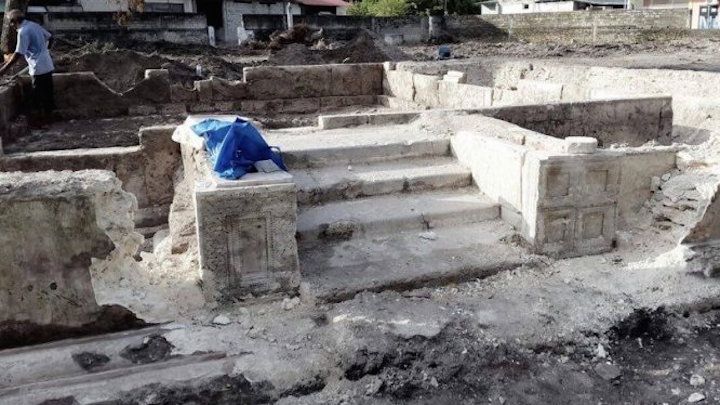Ruins of ancient mosque dug up on southern island
A limestone wall with stonework has been found within the boundaries of the abandoned Friday mosque on southern Thinadhoo Island.

09 Dec 2015, 09:00
The ruins of an ancient mosque have been discovered this week on the southern island of Thinadhoo in Gaafu Dhaalu Atoll during land excavation for the construction of a new Islamic centre.
Abdulla Saneef, a member of the Thinadhoo island council, told The Maldives Independent that a limestone wall with stonework had been found within the boundaries of the abandoned Friday mosque.
“The mosque was abandoned eight years ago after the discovery of human remains from the area, even under the foundation of the mosque. Excavation by the roads corporation revealed the ruins of an older limestone mosque,” he explained.
Islamic principles do not allow places of worship to be built on the site of a cemetery. Courtyards of mosques, however, have traditionally been used as graveyards.
Become a member
Get full access to our archive and personalise your experience.
Already a member?
Discussion
No comments yet. Be the first to share your thoughts!
No comments yet. Be the first to join the conversation!
Join the Conversation
Sign in to share your thoughts under an alias and take part in the discussion. Independent journalism thrives on open, respectful debate — your voice matters.




